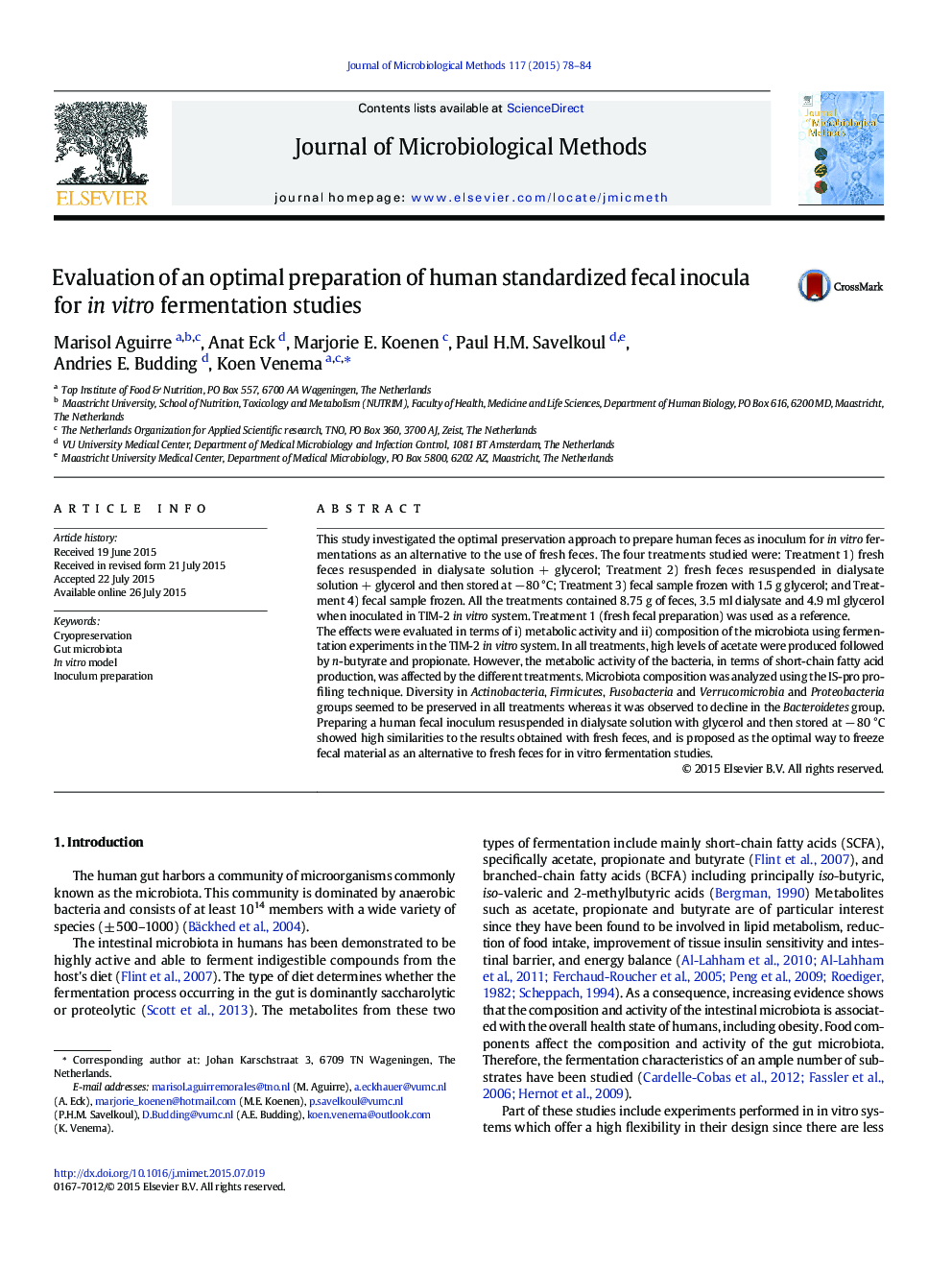| Article ID | Journal | Published Year | Pages | File Type |
|---|---|---|---|---|
| 8421405 | Journal of Microbiological Methods | 2015 | 7 Pages |
Abstract
The effects were evaluated in terms of i) metabolic activity and ii) composition of the microbiota using fermentation experiments in the TIM-2 in vitro system. In all treatments, high levels of acetate were produced followed by n-butyrate and propionate. However, the metabolic activity of the bacteria, in terms of short-chain fatty acid production, was affected by the different treatments. Microbiota composition was analyzed using the IS-pro profiling technique. Diversity in Actinobacteria, Firmicutes, Fusobacteria and Verrucomicrobia and Proteobacteria groups seemed to be preserved in all treatments whereas it was observed to decline in the Bacteroidetes group. Preparing a human fecal inoculum resuspended in dialysate solution with glycerol and then stored at â 80 °C showed high similarities to the results obtained with fresh feces, and is proposed as the optimal way to freeze fecal material as an alternative to fresh feces for in vitro fermentation studies.
Related Topics
Life Sciences
Biochemistry, Genetics and Molecular Biology
Biotechnology
Authors
Marisol Aguirre, Anat Eck, Marjorie E. Koenen, Paul H.M. Savelkoul, Andries E. Budding, Koen Venema,
